I.
There once lived in the district of Ushigome, in Yedo, a hamamato* (high-ranking samurai) called Iijima Heizayemon, whose only daughter, Tsuyu, was beautiful as her name, which signifies "Morning Dew." Iijima took a second wife when his daughter was about sixteen; and, finding that O-Tsuyu could not be happy with her mother-in-law, he had a pretty villa built for the girl at Yanagijima, as a separate residence, and gave her an excellent maidservant, called O-Yone, to wait upon her.
O-Tsuyu lived happily enough in her new home until one day when the family physician, Yamamoto Shijo, paid her a visit in company with a young samurai named Hagiwara Shinzaburo, who resided in the Nedzu quarter. Shinzaburo was an unusually handsome lad, and very gentle; and the two young people fell in love with each other at sight. Even before the brief visit was over, they contrived,--unheard by the old doctor,--to pledge themselves to each other for life. And, at parting, O-Tsuyu whispered to the youth,--"Remember! If you do not come to see me again, I shall certainly die!"
Shinzaburo never forgot those words; and he was only too eager to see more of O-Tsuyu. But etiquette forbade him to make the visit alone: he was obliged to wait for some other chance to accompany the doctor, who had promised to take him to the villa a second time. Unfortunately the old man did not keep this promise. He had perceived the sudden affection of O-Tsuyu; and he feared that her father would hold him responsible for any serious results. Iijima Heizayemon had a reputation for cutting off heads. And the more Shijo thought about the possible consequences of his introduction of Shinzaburo at the Iijima villa, the more he became afraid. Therefore he purposely abstained from calling upon his young friend.
Months passed; and O-Tsuyu, little imagining the true cause of Shinzaburo's neglect, believed that her love had been scorned. Then she pined away, and died. Soon afterwards, the faithful servant O-Yone also died, through grief at the loss of her mistress; and the two were buried side by side in the cemetery of Shin-Banzui-In,--a temple which still stands in the neighborhood of Dango-Zaka, where the famous chrysanthemum-shows are yearly held.
(* Note: The "hatamoto" were samurai forming the special military force of the Shogun. The name literally signifies "Banner-Supporters." These were the highest class of samurai,--not only as the immediate vassals of the Shogun, but as a military aristocracy.)
II
Shinzaburo knew nothing of what had happened; but his disappointment and his anxiety had resulted in a prolonged illness. He was slowly recovering, but still very weak, when he unexpectedly received another visit from Yamamoto Shijo. The old man made a number of plausible excuses for his apparent neglect. Shinzaburo said to him:--"I have been sick ever since the beginning of spring;--even now I cannot eat anything.... Was it not rather unkind of you never to call? I thought that we were to make another visit together to the house of the Lady Iijima; and I wanted to take to her some little present as a return for our kind reception. Of course I could not go by myself."
Shijo gravely responded,--"I am very sorry to tell you that the young lady is dead!"
"Dead!" repeated Shinzaburo, turning white,--"did you say that she is dead?"
The doctor remained silent for a moment, as if collecting himself: then he resumed, in the quick light tone of a man resolved not to take trouble seriously:--
"My great mistake was in having introduced you to her; for it seems that she fell in love with you at once. I am afraid that you must have said something to encourage this affection--when you were in that little room together. At all events, I saw how she felt towards you; and then I became uneasy,--fearing that her father might come to hear of the matter, and lay the whole blame upon me. So--to be quite frank with you,--I decided that it would be better not to call upon you; and I purposely stayed away for a long time. But, only a few days ago, happening to visit Iijima's house, I heard, to my great surprise, that his daughter had died, and that her servant O-Yone had also died. Then, remembering all that had taken place, I knew that the young lady must have died of love for you.... [Laughing] Ah, you are really a sinful fellow! Yes, you are! [Laughing] Isn't it a sin to have been born so handsome that the girls die for love of you? [Seriously] Well, we must leave the dead to the dead. It is no use to talk further about the matter;--all that you now can do for her is to repeat the Nembutsu (The invocation Namu Amida Butsu! ("Hail to the Buddha Amitabha!"),--repeated, as a prayer, for the sake of the dead.)
.... Good-bye."
And the old man retired hastily,--anxious to avoid further converse about the painful event for which he felt himself to have been unwittingly responsible.
III
Shinzaburo long remained stupefied with grief by the news of O- Tsuyu's death. But as soon as he found himself again able to think clearly, he inscribed the dead girl's name upon a mortuary tablet, and placed the tablet in the Buddhist shrine of his house, and set offerings before it, and recited prayers. Every day thereafter he presented offerings, and repeated the Nembutsu; and the memory of O-Tsuyu was never absent from his thought.
Nothing occurred to change the monotony of his solitude before the time of the Bon,--the great Festival of the Dead,--which begins upon the thirteenth day of the seventh month. Then he decorated his house, and prepared everything for the festival;-- hanging out the lanterns that guide the returning spirits, and setting the food of ghosts on the shoryodana, or Shelf of Souls. And on the first evening of the Ban, after sun-down, he kindled a small lamp before the tablet of O-Tsuyu, and lighted the lanterns.
The night was clear, with a great moon,--and windless, and very warm. Shinzaburo sought the coolness of his veranda. Clad only in a light summer-robe, he sat there thinking, dreaming, sorrowing; --sometimes fanning himself; sometimes making a little smoke to drive the mosquitoes away. Everything was quiet. It was a lonesome neighborhood, and there were few passers-by. He could hear only the soft rushing of a neighboring stream, and the shrilling of night-insects.
But all at once this stillness was broken by a sound of women's geta approaching--kara-kon, kara-kon;--and the sound drew nearer and nearer, quickly, till it reached the live-hedge surrounding the garden. Then Shinzabur・ feeling curious, stood on tiptoe, so as to look Over the hedge; and he saw two women passing. One, who was carrying a beautiful lantern decorated with peony-flowers (botan), appeared to be a servant;--the other was a slender girl of about seventeen, wearing a long-sleeved robe embroidered with designs of autumn-blossoms. Almost at the same instant both women turned their faces toward Shinzaburo;--and to his utter astonishment, he recognized O-Tsuyu and her servant O- Yone.
They stopped immediately; and the girl cried out,--"Oh, how strange!... Hagiwara Sama!"
Shinzaburo simultaneously called to the maid:--"O-Yone! Ah, you are O-Yone!--I remember you very well."
"Hagiwara Sama!" exclaimed O-Yone in a tone of supreme amazement. "Never could I have believed it possible!... Sir, we were told that you had died."
"How extraordinary!" cried Shinzaburo. "Why, I was told that both of you were dead!"
"Ah, what a hateful story!" returned O-Yone. "Why repeat such unlucky words?... Who told you?"
"Please to come in," said Shinzaburo;--"here we can talk better. The garden-gate is open."
So they entered, and exchanged greeting; and when Shinzaburo had made them comfortable, he said:--
"I trust that you will pardon my discourtesy in not having called upon you for so long a time. But Shijo, the doctor, about a month ago, told me that you had both died."
"So it was he who told you?" exclaimed O-Yone. "It was very wicked of him to say such a thing. Well, it was also Shijo who told us that you were dead. I think that he wanted to deceive you,--which was not a difficult thing to do, because you are so confiding and trustful. Possibly my mistress betrayed her liking for you in some words which found their way to her father's ears; and, in that case, O-Kuni--the new wife--might have planned to make the doctor tell you that we were dead, so as to bring about a separation. Anyhow, when my mistress heard that you had died, she wanted to cut off her hair immediately, and to become a nun. But I was able to prevent her from cutting off her hair; and I persuaded her at last to become a nun only in her heart. Afterwards her father wished her to marry a certain young man; and she refused. Then there was a great deal of trouble,--chiefly caused by O-Kuni;--and we went away from the villa, and found a very small house in Yanaka-no-Sasaki. There we are now just barely able to live, by doing a little private work.... My mistress has been constantly repeating the Nembutsu for your sake. To-day, being the first day of the Bon, we went to visit the temples; and we were on our way home--thus late--when this strange meeting happened."
"Oh, how extraordinary!" cried Shinzaburo. "Can it be true?-or is it only a dream? Here I, too, have been constantly reciting the Nembutsu before a tablet with her name upon it! Look!" And he showed them O-Tsuyu's tablet in its place upon the Shelf of Souls.
"We are more than grateful for your kind remembrance," returned O-Yone, smiling.... "Now as for my mistress,"--she continued, turning towards O-Tsuyu, who had all the while remained demure and silent, half-hiding her face with her sleeve,--"as for my mistress, she actually says that she would not mind being disowned by her father for the time of seven existences,(3) or even being killed by him, for your sake! Come! will you not allow her to stay here to-night?"
Shinzaburo turned pale for joy. He answered in a voice trembling with emotion:--"Please remain; but do not speak loud--because there is a troublesome fellow living close by,--a ninsomi called Hakuodo Yusai, who tells peoples fortunes by looking at their faces. He is inclined to be curious; and it is better that he should not know."
The two women remained that night in the house of the young samurai, and returned to their own home a little before daybreak. And after that night they came every nighht for seven nights,-- whether the weather were foul or fair,--always at the same hour. And Shinzaburo became more and more attached to the girl; and the twain were fettered, each to each, by that bond of illusion which is stronger than bands of iron.
IV
Now there was a man called Tomozo, who lived in a small cottage adjoining Shinzaburo's residence, Tomozo and his wife O-Mine were both employed by Shinzaburo as servants. Both seemed to be devoted to their young master; and by his help they were able to live in comparative comfort.
One night, at a very late hour, Tomozo heard the voice of a woman in his master's apartment; and this made him uneasy. He feared that Shinzaburo, being very gentle and affectionate, might be made the dupe of some cunning wanton,--in which event the domestics would be the first to suffer. He therefore resolved to watch; and on the following night he stole on tiptoe to Shinzaburo's dwelling, and looked through a chink in one of the sliding shutters. By the glow of a night-lantern within the sleeping-room, he was able to perceive that his master and a strange woman were talking together under the mosquito-net. At first he could not see the woman distinctly. Her back was turned to him;--he only observed that she was very slim, and that she appeared to be very young,--judging from the fashion of her dress and hair. Putting his ear to the chink, he could hear the conversation plainly. The woman said:--
"And if I should be disowned by my father, would you then let me come and live with you?"
Shinzaburo answered:--
"Most assuredly I would--nay, I should be glad of the chance. But there is no reason to fear that you will ever be disowned by your father; for you are his only daughter, and he loves you very much. What I do fear is that some day we shall be cruelly separated."
She responded softly:--
"Never, never could I even think of accepting any other man for my husband. Even if our secret were to become known, and my father were to kill me for what I have done, still--after death itself--I could never cease to think of you. And I am now quite sure that you yourself would not be able to live very long without me."... Then clinging closely to him, with her lips at his neck, she caressed him; and he returned her caresses.
Tomozo wondered as he listened,--because the language of the woman was not the language of a common woman, but the language of a lady of rank.(2) Then he determined at all hazards to get one glimpse of her face; and he crept round the house, backwards and forwards, peering through every crack and chink. And at last he was able to see;--but therewith an icy trembling seized him; and the hair of his head stood up.
For the face was the face of a woman long dead,--and the fingers caressing were fingers of naked bone,--and of the body below the waist there was not anything: it melted off into thinnest trailing shadow. Where the eyes of the lover deluded saw youth and grace and beauty, there appeared to the eyes of the watcher horror only, and the emptiness of death. Simultaneously another woman's figure, and a weirder, rose up from within the chamber, and swiftly made toward the watcher, as if discerning his presence. Then, in uttermost terror, he fled to the dwelling of Hakuodo Yusai, and, knocking frantically at the doors, succeeded in arousing him.
V
Hakuodo Yusai, the ninsomi, was a very old man; but in his time he had travelled much, and he had heard and seen so many things that he could not be easily surprised. Yet the story of the terrified Tomozo both alarmed and amazed him. He had read in ancient Chinese books of love between the living and the dead; but he had never believed it possible. Now, however, he felt convinced that the statement of Tomozo was not a falsehood, and that something very strange was really going on in the house of Hagiwara. Should the truth prove to be what Tomozo imagined, then the young samurai was a doomed man.
"If the woman be a ghost,"--said Yusai to the frightened servant, "--if the woman be a ghost, your master must die very soon,-- unless something extraordinary can be done to save him. And if the woman be a ghost, the signs of death will appear upon his face. For the spirit of the living is yoki, and pure;--the spirit of the dead is inki, and unclean: the one is Positive, the other Negative. He whose bride is a ghost cannot live. Even though in his blood there existed the force of a life of one hundred years, that force must quickly perish.... Still, I shall do all that I can to save Hagiwara Sama. And in the meantime, Tomozo, say nothing to any other person,--not even to your wife,--about this matter. At sunrise I shall call upon your master."
When questioned next morning by Yusai, Shinzaburo at first attempted to deny that any women had been visiting the house; but finding this artless policy of no avail, and perceiving that the old man's purpose was altogether unselfish, he was finally persuaded to acknowledge what had really occurred, and to give his reasons for wishing to keep the matter a secret. As for the lady Iijima, he intended, he said, to make her his wife as soon as possible.
"Oh, madness!" cried Yusai,--losing all patience in the intensity of his alarm. "Know, sir, that the people who have been coming here, night after night, are dead! Some frightful delusion is upon you!... Why, the simple fact that you long supposed O-Tsuyu to be dead, and repeated the Nembutsu for her, and made offerings before her tablet, is itself the proof!... The lips of the dead have touched you!--the hands of the dead have caressed you!... Even at this moment I see in your face the signs of death--and you will not believe!... Listen to me now, sir,--I beg of you,-- if you wish to save yourself: otherwise you have less than twenty days to live. They told you--those people--that they were residing in the district of Shitaya, in Yanaka-no-Sasaki. Did you ever visit them at that place? No!--of course you did not! Then go to-day,--as soon as you can,--to Yanaka-no-Sasaki, and try to find their home!..."
And having uttered this counsel with the most vehement earnestness, Hakuodo Yusai abruptly took his departure.
Shinzaburo, startled though not convinced, resolved after a moment's reflection to follow the advice of the ninsomi, and to go to Shitaya. It was yet early in the morning when he reached the quarter of Yanaka-no-Sasaki, and began his search for the dwelling of O-Tsuyu. He went through every street and side- street, read all the names inscribed at the various entrances, and made inquiries whenever an opportunity presented itself. But he could not find anything resembling the little house mentioned by O-Yone; and none of the people whom he questioned knew of any house in the quarter inhabited by two single women. Feeling at last certain that further research would be useless, he turned homeward by the shortest way, which happened to lead through the grounds of the temple Shin-Banzui-In.
Suddenly his attention was attracted by two new tombs, placed side by side, at the rear of the temple. One was a common tomb, such as might have been erected for a person of humble rank: the other was a large and handsome monument; and hanging before it was a beautiful peony-lantern, which had probably been left there at the time of the Festival of the Dead. Shinzaburo remembered that the peony-lantern carried by O-Yone was exactly similar; and the coincidence impressed him as strange. He looked again at the tombs; but the tombs explained nothing. Neither bore any personal name,--only the Buddhist kaimyo, or posthumous appellation. Then he determined to seek information at the temple. An acolyte stated, in reply to his questions, that the large tomb had been recently erected for the daughter of Iijima Heizayemon, the hatamoto of Ushigome; and that the small tomb next to it was that of her servant O-Yone, who had died of grief soon after the young lady's funeral.
Immediately to Shinzabur・s memory there recurred, with another and sinister meaning, the words of O-Yone:--"We went away, and found a very small house in Yanaka-no-Sasaki. There we are now just barely able to live--by doing a little private work...." Here was indeed the very small house,--and in Yanaka-no-Sasaki. But the little private work...?
Terror-stricken, the samurai hastened with all speed to the house of Yusai, and begged for his counsel and assistance. But Yusai declared himself unable to be of any aid in such a case. All that he could do was to send Shinzaburo to the high-priest Ryoseki, of Shin-Banzui-In, with a letter praying for immediate religious help.
VII
The high-priest Ryoseki was a learned and a holy man. By spiritual vision he was able to know the secret of any sorrow, and the nature of the karma that had caused it. He heard unmoved the story of Shinzaburo, and said to him:--
"A very great danger now threatens you, because of an error committed in one of your former states of existence. The karma that binds you to the dead is very strong; but if I tried to explain its character, you would not be able to understand. I shall therefore tell you only this,--that the dead person has no desire to injure you out of hate, feels no enmity towards you: she is influenced, on the contrary, by the most passionate affection for you. Probably the girl has been in love with you from a time long preceding your present life,--from a time of not less than three or four past existences; and it would seem that, although necessarily changing her form and condition at each succeeding birth, she has not been able to cease from following after you. Therefore it will not be an easy thing to escape from her influence.... But now I am going to lend you this powerful mamori*. It is a pure gold image of that Buddha called the Sea-Sounding Tathagata --Kai-On-Nyorai,-- because his preaching of the Law sounds through the world like the sound of the sea. And this little image is especially a shiryo-yoke,--which protects the living from the dead. This you must wear, in its covering, next to your body,--under the girdle.... Besides, I shall presently perform in the temple, a segaki-service for the repose of the troubled spirit.... And here is a holy sutra, called Ubo-Darani- Kyo, or "Treasure-Raining Sutra" you must be careful to recite it every night in your house--without fail.... Furthermore I shall give you this package of o-fuda (protective prayers written on small sheets of paper);--you must paste one of them over every opening of your house,--no matter how small. If you do this, the power of the holy texts will prevent the dead from entering. But--whatever may happen--do not fail to recite the sutra."
Shinzaburo humbly thanked the high-priest; and then, taking with him the image, the sutra, and the bundle of sacred texts, he made all haste to reach his home before the hour of sunset. (* Note: The Japanese word mamori has significations at least as numerous as those attaching to our own term "amulet." It would be impossible, in a mere footnote, even to suggest the variety of Japanese religious objects to which the name is given. In this instance, the mamori is a very small image, probably enclosed in a miniature shrine of lacquer-work or metal, over which a silk cover is drawn. Such little images were often worn by samurai on the person. I was recently shown a miniature figure of Kwannon, in an iron case, which had been carried by an officer through the Satsuma war. He observed, with good reason, that it had probably saved his life; for it had stopped a bullet of which the dent was plainly visible.)
VIII
With Yusai's advice and help, Shinzaburo was able before dark to fix the holy texts over all the apertures of his dwelling. Then the ninsomi returned to his own house,--leaving the youth alone. Night came, warm and clear. Shinzaburo made fast the doors, bound the precious amulet about his waist, entered his mosquito-net, and by the glow of a night-lantern began to recite the Ubo- Darani-Kyo. For a long time he chanted the words, comprehending little of their meaning;--then he tried to obtain some rest. But his mind was still too much disturbed by the strange events of the day. Midnight passed; and no sleep came to him. At last he heard the boom of the great temple-bell of Dentsu-In announcing the eighth hour.
It ceased; and Shinzaburo suddenly heard the sound of geta approaching from the old direction,--but this time more slowly: karan-koron, karan-koron! At once a cold sweat broke over his forehead. Opening the sutra hastily, with trembling hand, he began again to recite it aloud. The steps came nearer and nearer,--reached the live hedge,--stopped! Then, strange to say, Shinzaburo felt unable to remain under his mosquito-net: something stronger even than his fear impelled him to look; and, instead of continuing to recite the Ubo-Darani-Kyo, he foolishly approached the shutters, and through a chink peered out into the night. Before the house he saw O-Tsuyu standing, and O-Yone with the peony-lantern; and both of them were gazing at the Buddhist texts pasted above the entrance. Never before--not even in what time she lived--had O-Tsuyu appeared so beautiful; and Shinzaburo felt his heart drawn towards her with a power almost resistless. But the terror of death and the terror of the unknown restrained; and there went on within him such a struggle between his love and his fear that he became as one suffering in the body the pains of the Sho-netsu hell.
Presently he heard the voice of the maid-servant, saying:--
"My dear mistress, there is no way to enter. The heart of Hagiwara Sama must have changed. For the promise that he made last night has been broken; and the doors have been made fast to keep us out.... We cannot go in to-night.... It will be wiser for you to make up your mind not to think any more about him, because his feeling towards you has certainly changed. It is evident that he does not want to see you. So it will be better not to give yourself any more trouble for the sake of a man whose heart is so unkind."
But the girl answered, weeping:--
"Oh, to think that this could happen after the pledges which we made to each other!... Often I was told that the heart of a man changes as quickly as the sky of autumn;--yet surely the heart of Hagiwara Sama cannot be so cruel that he should really intend to exclude me in this way!... Dear Yone, please find some means of taking me to him.... Unless you do, I will never, never go home again."
Thus she continued to plead, veiling her face with her long sleeves,--and very beautiful she looked, and very touching; but the fear of death was strong upon her lover.
O-Yone at last made answer,--"My dear young lady, why will you trouble your mind about a man who seems to be so cruel?... Well, let us see if there be no way to enter at the back of the house: come with me!"
And taking O-Tsuyu by the hand, she led her away toward the rear of the dwelling; and there the two disappeared as suddenly as the light disappears when the flame of a lamp is blown out.
IX
Night after night the shadows came at the Hour of the Ox; and nightly Shinzaburo heard the weeping of O-Tsuyu. Yet he believed himself saved,--little imagining that his doom had already been decided by the character of his dependents.
Tomozo had promised Yusai never to speak to any other person--not even to O-Mine--of the strange events that were taking place. But Tomozo was not long suffered by the haunters to rest in peace. Night after night O-Yone entered into his dwelling, and roused him from his sleep, and asked him to remove the o-fuda placed over one very small window at the back of his master's house. And Tomozo, out of fear, as often promised her to take away the o- fuda before the next sundown; but never by day could he make up his mind to remove it,--believing that evil was intended to Shinzaburo. At last, in a night of storm, O-Yone startled him from slumber with a cry of reproach, and stooped above his pillow, and said to him: "Have a care how you trifle with us! If, by to-morrow night, you do not take away that text, you shall learn how I can hate!" And she made her face so frightful as she spoke that Tomozo nearly died of terror.
O-Mine, the wife of Tomozo, had never till then known of these visits: even to her husband they had seemed like bad dreams. But on this particular night it chanced that, waking suddenly, she heard the voice of a woman talking to Tomozo. Almost in the same moment the talk-ing ceased; and when O-Mine looked about her, she saw, by the light of the night-lamp, only her husband,-- shuddering and white with fear. The stranger was gone; the doors were fast: it seemed impossible that anybody could have entered. Nevertheless the jealousy of the wife had been aroused; and she began to chide and to question Tomozo in such a manner that he thought himself obliged to betray the secret, and to explain the terrible dilemma in which he had been placed.
Then the passion of O-Mine yielded to wonder and alarm; but she was a subtle woman, and she devised immediately a plan to save her husband by the sacrifice of her master. And she gave Tomozo a cunning counsel,--telling him to make conditions with the dead.
They came again on the following night at the Hour of the Ox; and O-Mine hid herself on hearing the sound of their coming,--karan- koron, karan-koron! But Tomozo went out to meet them in the dark, and even found courage to say to them what his wife had told him to say:--
"It is true that I deserve your blame;--but I had no wish to cause you anger. The reason that the o-fuda has not been taken away is that my wife and I are able to live only by the help of Hagiwara Sama, and that we cannot expose him to any danger without bringing misfortune upon ourselves. But if we could obtain the sum of a hundred ryo in gold, we should be able to please you, because we should then need no help from anybody. Therefore if you will give us a hundred ryo, I can take the o- fuda away without being afraid of losing our only means of support."
When he had uttered these words, O-Yone and O-Tsuyu looked at each other in silence for a moment. Then O-Yon・said:--
"Mistress, I told you that it was not right to trouble this man, --as we have no just cause of ill will against him. But it is certainly useless to fret yourself about Hagiwara Sama, because his heart has changed towards you. Now once again, my dear young lady, let me beg you not to think any more about him!"
But O-Tsuyu, weeping, made answer:--
"Dear Yone, whatever may happen, I cannot possibly keep myself from thinking about him! You know that you can get a hundred ryo to have the o-fuda taken off.... Only once more, I pray, dear Yone!--only once more bring me face to face with Hagiwara Sama, --I beseech you!" And hiding her face with her sleeve, she thus continued to plead.
"Oh! why will you ask me to do these things?" responded O-Yone. "You know very well that I have no money. But since you will persist in this whim of yours, in spite of all that I can say, I suppose that I must try to find the money somehow, and to bring it here to-morrow night...." Then, turning to the faithless Tomozo, she said:--"Tomozo, I must tell you that Hagiwara Sama now wears upon his body a mamoni called by the name of Kai-On- Nyorai, and that so long as he wears it we cannot approach him. So you will have to get that mamori away from him, by some means or other, as well as to remove the o-fuda."
Tomozo feebly made answer:--
"That also I can do, if you will promise to bring me the hundred ryo."
"Well, mistress," said O-Yone, "you will wait,--will you not,-- until to-morrow night?"
"Oh, dear Yone!" sobbed the other,--"have we to go back to-night again without seeing Hagiwara Sama? Ah! it is cruel!"
And the shadow of the mistress, weeping, was led away by the shadow of the maid.
X
Another day went, and another night came, and the dead came with it. But this time no lamentation was heard without the house of Hagiwara; for the faithless servant found his reward at the Hour of the Ox, and removed the o-fuda. Moreover he had been able, while his master was at the bath, to steal from its case the golden mamori, and to substitute for it an image of copper; and he had buried the Kai-On-Nyorai in a desolate field. So the visitants found nothing to oppose their entering. Veiling their faces with their sleeves they rose and passed, like a streaming of vapor, into the little window from over which the holy text had been torn away. But what happened thereafter within the house Tomozo never knew.
The sun was high before he ventured again to approach his master's dwelling, and to knock upon the sliding-doors. For the first time in years he obtained no response; and the silence made him afraid. Repeatedly he called, and received no answer. Then, aided by O-Mine, he succeeded in effecting an entrance and making his way alone to the sleeping-room, where he called again in vain. He rolled back the rumbling shutters to admit the light; but still within the house there was no stir. At last he dared to lift a corner of the mosquito-net. But no sooner had he looked beneath than he fled from the house, with a cry of horror.
Shinzaburo was dead--hideously dead;--and his face was the face of a man who had died in the uttermost agony of fear;--and lying beside him in the bed were the bones of a woman! And the bones of the arms, and the bones of the hands, clung fast about his neck.
Xl
Hakuodo Yusai, the fortune-teller, went to view the corpse at the prayer of the faithless Tomozo. The old man was terrified and astonished at the spectacle, but looked about him with a keen eye. He soon perceived that the o-fuda had been taken from the little window at the back of the house; and on searching the body of Shinzaburo, he discovered that the golden mamori had been taken from its wrapping, and a copper image of Fudo put in place of it. He suspected Tomozo of the theft; but the whole occurrence was so very extraordinary that he thought it prudent to consult with the priest Ryoseki before taking further action. Therefore, after having made a careful examination of the premises, he betook himself to the temple Shin-Banzui-In, as quickly as his aged limbs could bear him.
Ryoseki, without waiting to hear the purpose of the old man's visit, at once invited him into a private apartment.
"You know that you are always welcome here," said Ryoseki. "Please seat yourself at ease.... Well, I am sorry to tell you that Hagiwara Sama is dead."
Yusai wonderingly exclaimed:--"Yes, he is dead;--but how did you learn of it?"
The priest responded:--
"Hagiwara Sama was suffering from the results of an evil karma; and his attendant was a bad man. What happened to Hagiwara Sama was unavoidable;--his destiny had been determined from a time long before his last birth. It will be better for you not to let your mind be troubled by this event."
Yusai said:--
"I have heard that a priest of pure life may gain power to see into the future for a hundred years; but truly this is the first time in my existence that I have had proof of such power.... Still, there is another matter about which I am very anxious...."
"You mean," interrupted Ryoseki, "the stealing of the holy mamori, the Kai-On-Nyorai. But you must not give yourself any concern about that. The image has been buried in a field; and it will be found there and returned to me during the eighth month of the coming year. So please do not be anxious about it."
"I have studied the In-Yo,(1) and the science of divination; and I make my living by telling peoples' fortunes;--but I cannot possibly understand how you know these things."
Ryoseki answered gravely:--
"Never mind how I happen to know them.... I now want to speak to you about Hagiwara's funeral. The House of Hagiwara has its own family-cemetery, of course; but to bury him there would not be proper. He must be buried beside O-Tsuyu, the Lady Iijima; for his karma-relation to her was a very deep one. And it is but right that you should erect a tomb for him at your own cost, because you have been indebted to him for many favors."
Thus it came to pass that Shinzaburo was buried beside O-Tsuyu, in the cemetery of Shin-Banzui-In, in Yanaka-no-Sasaki.


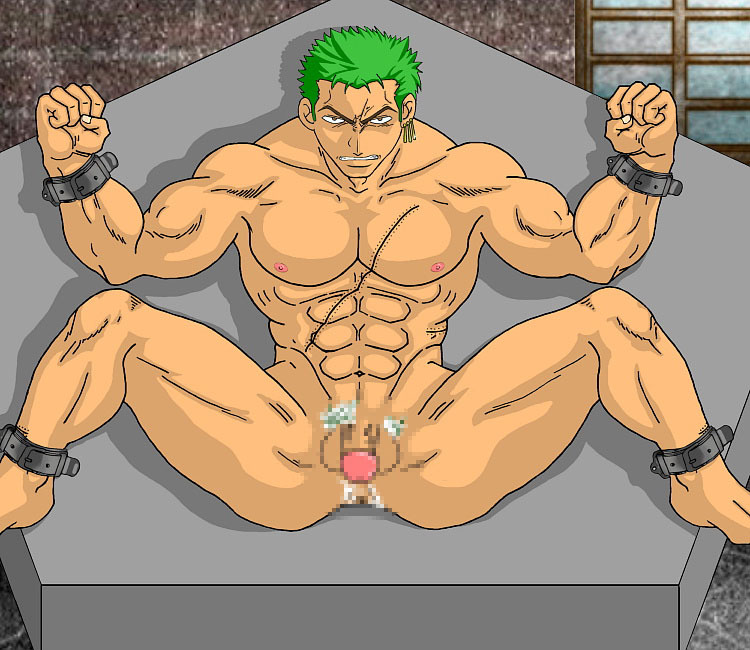
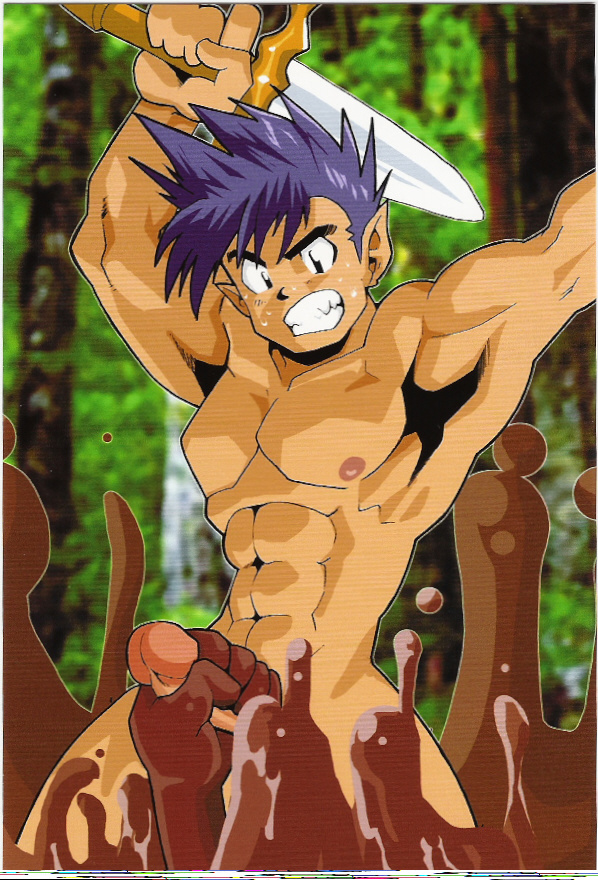


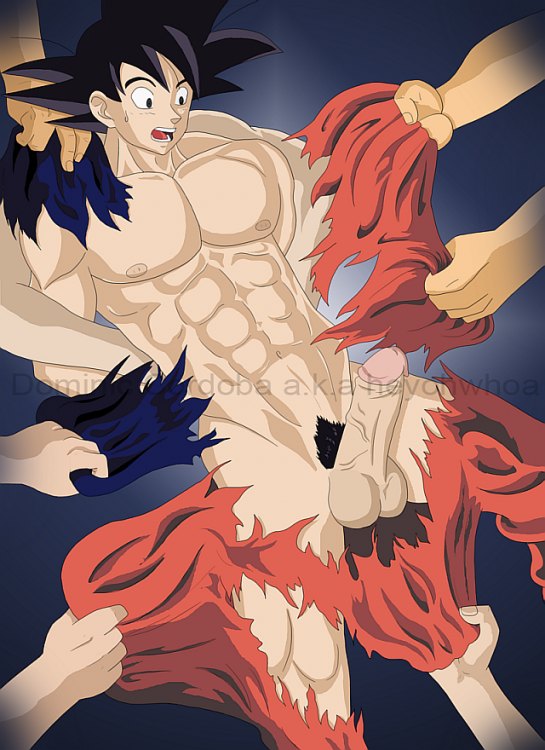





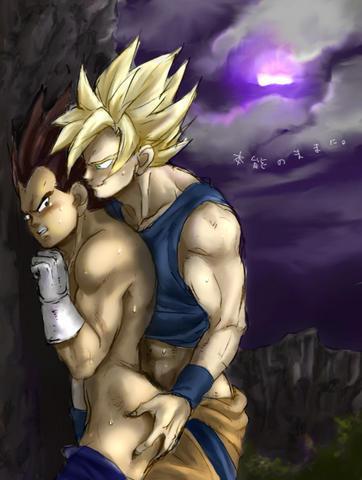








 When I first saw the film
When I first saw the film  Several hundred years ago there dwelt in lands of the Hosokawas a widow and her daughter, a beautiful girl of seventeen, named Kazuye. O Kazuye San's father had been foully murdered some six months before, and both Kazuye and her mother had made up their minds to devote their fortune and their lives to bringing the criminals to justice. In these efforts they received no help, but spent the whole of their money, until at last they were almost forced to beg in the street for food. Day after day, however, they continued to pray in the temple for help, and never once lost heart or weakened in their purpose. O Kazuye told her mother that were she fortunate enough to gain the affections of a man, even he should be sacrificed in the effort after vengeance.
Several hundred years ago there dwelt in lands of the Hosokawas a widow and her daughter, a beautiful girl of seventeen, named Kazuye. O Kazuye San's father had been foully murdered some six months before, and both Kazuye and her mother had made up their minds to devote their fortune and their lives to bringing the criminals to justice. In these efforts they received no help, but spent the whole of their money, until at last they were almost forced to beg in the street for food. Day after day, however, they continued to pray in the temple for help, and never once lost heart or weakened in their purpose. O Kazuye told her mother that were she fortunate enough to gain the affections of a man, even he should be sacrificed in the effort after vengeance. Continue reading
Continue reading 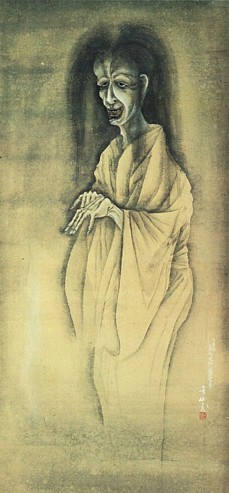
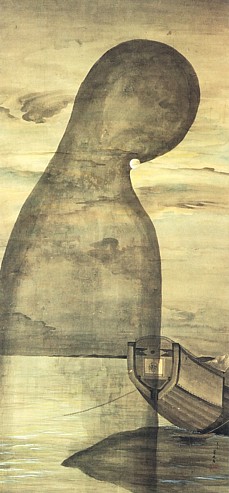
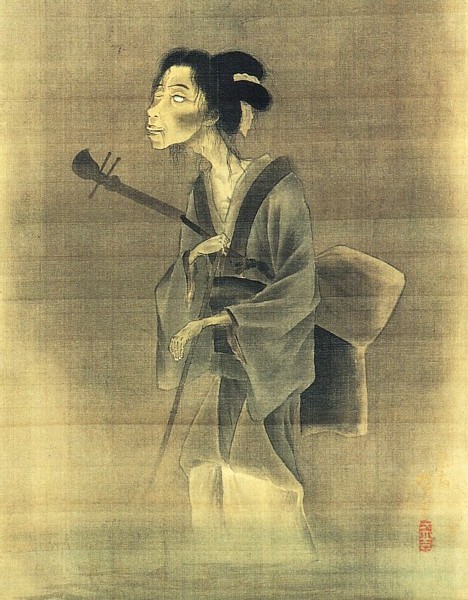
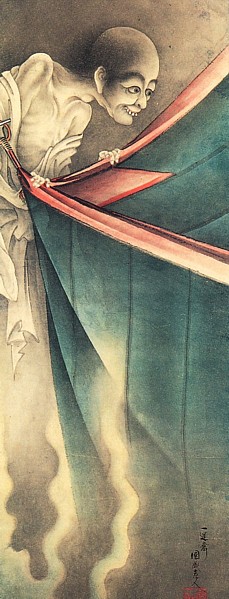
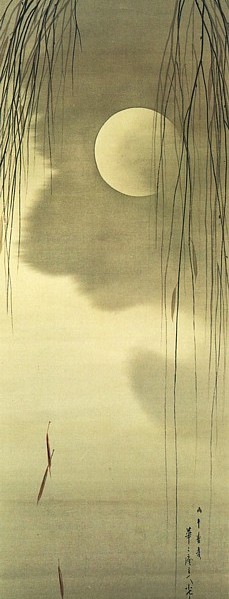
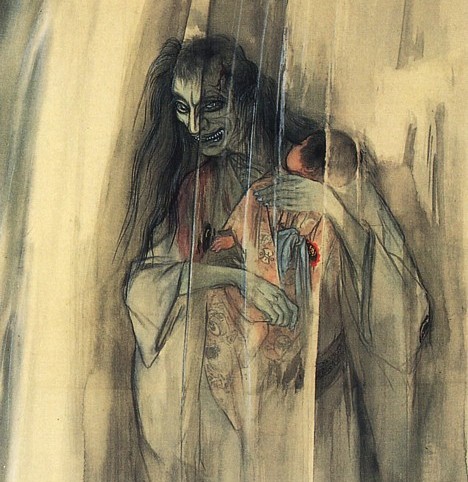
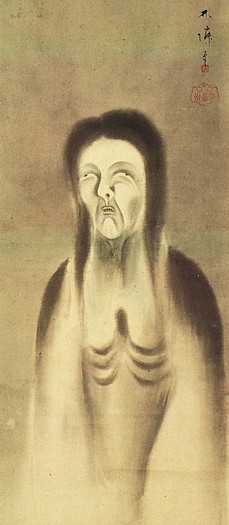
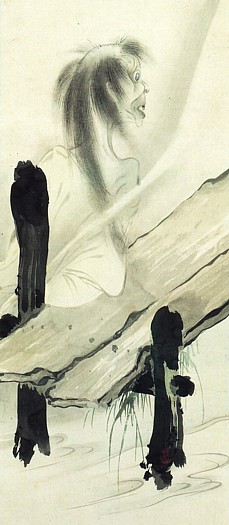
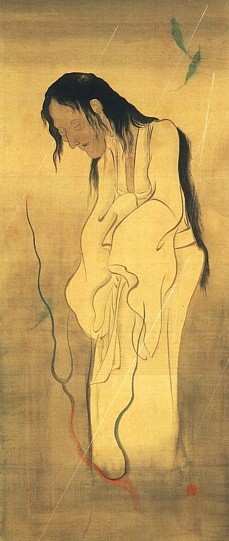
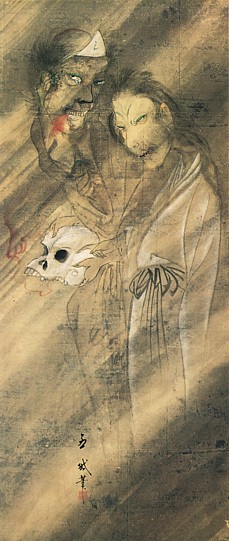
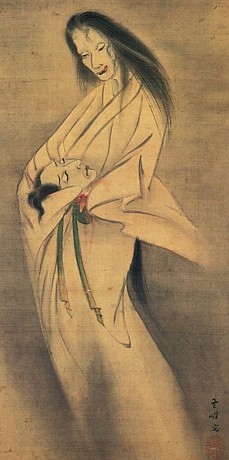
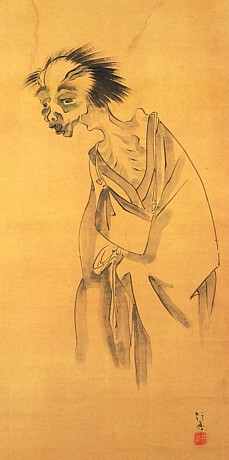





















Thanks for the info! I had been to the display yesterday. Kohada Koheiji and the ume bozu have to be seen up close. Many more nice scrolls to be seen, and sheets of ancient kanji like you wont beleive.
As for the access, if you dont like walking in the heat, you can take the chuo line from Nishi-Nippori to Sendagi (???), much closer.
[]
Went there last week on Saturday, was really awesome. Best thing was, that I met another foreigner there who found this show also on Pink Tentacle ...
[]
I liked the artist's concept of ghosts. But I didn't find any of them scary. I found these ghosts to be sad and confused, may be a little lost in their own world.
I do get scared by the subject of Ghosts otherwise, but the pictures above make me feel that they are another creation of some energy (divine energy, may be, like God). And they have their own set of problems that they are trying hard to solve. They are not happy for sure so the best we can do for them is to understand them and let them "BE". At least not get scared of them and make things more difficult for them.
[]
I am a scientist planning a series of projects with collaborators in Kyoto on supernatural beliefs. I find these images haunting in both an aesthetic and psychological way.
Once again pink tentacle achieves excellence in its portrait of Japan.
http://www.brucemhood.com
[]
Wow, thanks for sharing! I just found your site and have bookmarked and tracked back to it. I especially like the horrific husband and wife!
[]
i love this stuff...thanxxx. favorite being the severed head one- love, blood, lust.
[]
The artwork is beautiful.
[]
WOW kewl Thanks.
[]